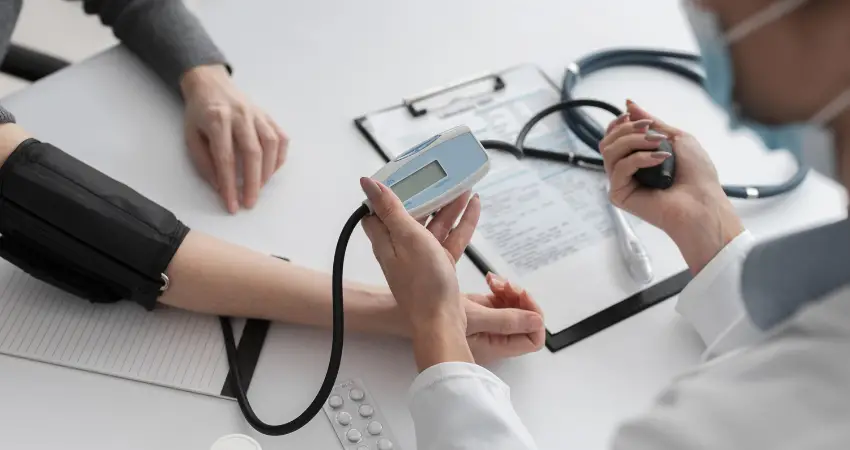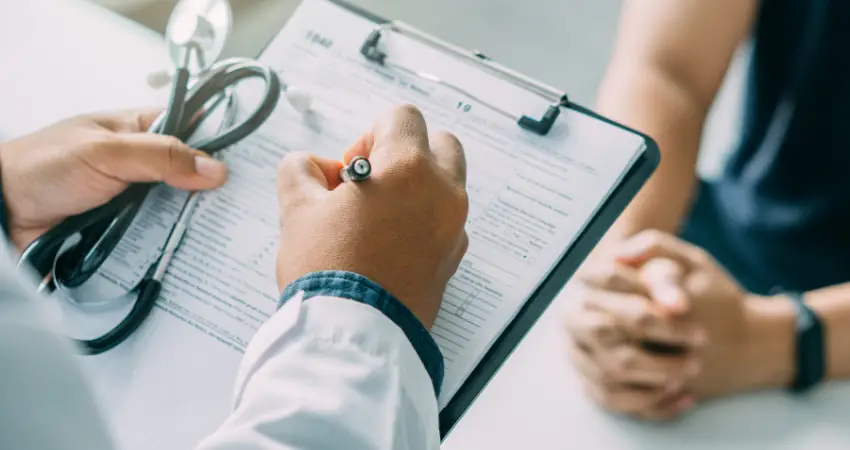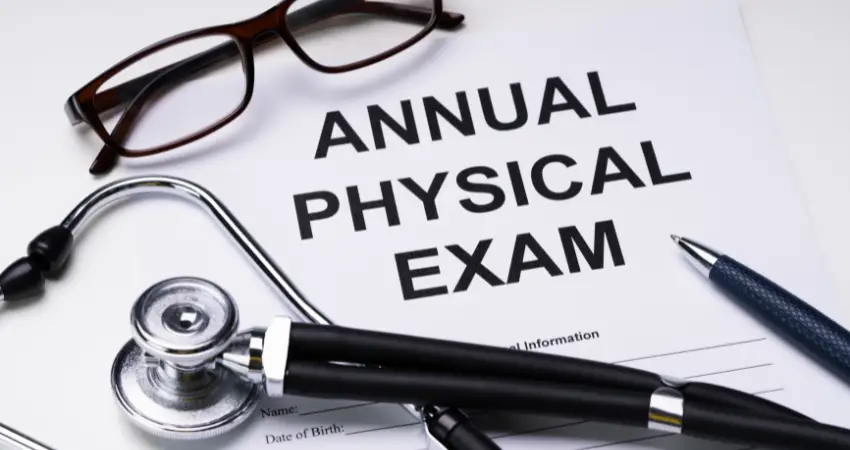When it comes to a wellness exam, one pressing question often arises: Should you eat beforehand? Understanding eating before a wellness exam is crucial for making informed decisions about your health. In this guide, we’ll provide clear insights into the importance of meal timing before your checkup, focusing on lab tests, blood pressure, and heart rate measurements.
Can I Eat Before a Wellness Exam?
It is advised not to eat before a wellness exam because there are certain lab tests that require you to fast for several hours.
Why Fasting Matters for Certain Blood Tests:
Cholesterol Levels:
Cholesterol is a fatty substance in your blood that comes from the food you eat.
When you fast before your wellness exam, it helps healthcare professionals measure your fasting cholesterol levels accurately.
This information is crucial for assessing your risk of heart disease. High cholesterol levels can lead to the buildup of plaque in your arteries, increasing the risk of heart attacks and strokes.
By fasting, healthcare providers can get a clearer picture of your cholesterol profile, including low-density lipoprotein (LDL) and high-density lipoprotein (HDL) cholesterol levels.

Blood Sugar (Glucose) Levels:
Fasting is essential for accurate blood sugar measurements.
When you eat, your body processes the food, releasing glucose into your bloodstream.
By fasting for at least 8 hours, typically overnight, your blood sugar levels stabilize, allowing healthcare providers to determine whether you have normal, prediabetic, or diabetic blood sugar levels.
Detecting abnormal glucose levels early is vital for managing diabetes and preventing complications.
Liver Function:
Liver function tests evaluate the health of your liver, which is responsible for filtering toxins from your blood and producing proteins important for blood clotting.
Some liver function tests, like ALT (alanine transaminase) and AST (aspartate transaminase), may require fasting before the exam.
Elevated levels of these enzymes could indicate liver damage or disease.
Blood Pressure and Heart Rate Measurements:
Now, let’s shift our focus to blood pressure and heart rate, two crucial aspects of your wellness exam:
Blood Pressure:
Blood pressure measures the force of blood against the walls of your arteries. It’s a key indicator of your cardiovascular health.
While fasting is important for specific blood tests, it doesn’t significantly influence your blood pressure reading.
Your healthcare provider will typically take your blood pressure after you’ve had a chance to sit and relax for a few minutes, regardless of whether you’ve eaten or not.
High blood pressure (hypertension) is a risk factor for heart disease, stroke, and other cardiovascular problems, so monitoring it during your wellness exam is essential.
Heart Rate:
Your heart rate, or pulse, is the number of times your heart beats per minute. It’s a reflection of your heart’s efficiency in pumping blood.
Similar to blood pressure, eating before your wellness exam doesn’t have a significant impact on your resting heart rate.
Your healthcare provider may check your heart rate by placing two fingers on your wrist or neck.
A normal resting heart rate for adults is typically between 60 and 100 beats per minute.
Variations in heart rate can indicate various health conditions, including arrhythmias, so it’s an important metric to assess during your checkup.

Conclusion:
In conclusion, fasting before a wellness exam is primarily necessary for specific blood tests, such as those measuring cholesterol and blood sugar levels.
Fasting helps ensure the accuracy of these critical measurements, which play a significant role in assessing your heart and overall health.
On the other hand, blood pressure and heart rate measurements can be taken effectively regardless of whether you’ve eaten or not.
These measurements provide valuable insights into your cardiovascular well-being.
Always follow your healthcare provider’s instructions regarding fasting and other preparations for your wellness exam to receive the most accurate results and ensure your health is being properly evaluated.
Conclusion
In conclusion, fasting before a wellness exam is primarily necessary for specific blood tests, such as those measuring cholesterol and blood sugar levels.
Fasting helps ensure the accuracy of these critical measurements, which play a significant role in assessing your heart and overall health.
These measurements provide valuable insights into your cardiovascular well-being.
Always follow your healthcare provider’s instructions regarding fasting and other preparations for your wellness exam to receive the most accurate results and ensure your health is being properly evaluated.


